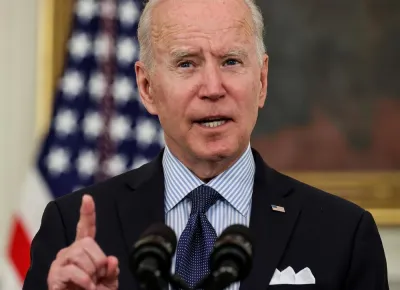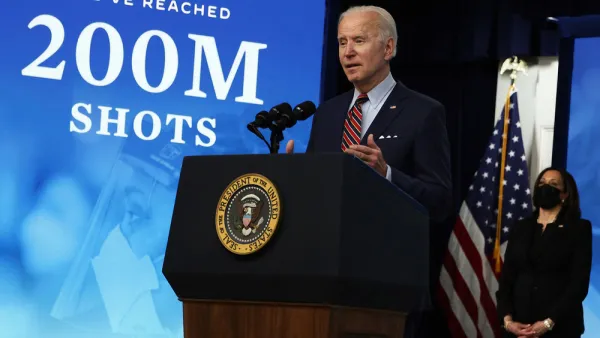The plan, initially proposed by five Democratic and five Republican senators, calls for $1.2 billion in spending over 8 years. Biden wants to see a much larger plan in a second bill, which could potentially sink the package.

"President Biden struck an infrastructure deal on Thursday with a bipartisan group of senators, signing on to their plan to provide about $579 billion in new investments in roads, broadband internet, electric utilities and other projects in hopes of moving a crucial piece of his economic agenda through Congress," report Emily Cochrane, Jim Tankersley, and Jonathan Weisman for The New York Times on June 24.
Mr. Biden noted that the deal includes about two-thirds of the funding that he had called for in several parts of his American Jobs Plan, in areas like clean power and environmental resilience.
However, the president made it clear that the "human infrastructure," such as child care and elder care services included in his jobs plan, needs to proceed in addition to the "physical infrastructure" in the bipartisan proposal.
“If this is the only thing that comes to me, I’m not signing it,” Mr. Biden said during remarks in the East Room of the White House. “It’s in tandem.”
Celebrating a deal would appear to be premature at best. The Times' reporters note some of the hurdles facing the Senate:
It’s not clear, though, that the bipartisan plan ...will muster the support of at least 60 senators to overcome any filibuster. And the two-track strategy promises to be a heavy lift for Democrats in a Congress where they have only the thinnest of majorities, and moderates and progressives have very different priorities.
"The bipartisan package must now win the support of progressive Democrats and conservative Republicans, while the broader 'human infrastructure' bill — likely to be routed through the legislative reconciliation process — must attract support from all 50 Senate Democrats to win passage," writes Quint Forgey for POLITICO.

Analysis: Cybertruck Fatality Rate Far Exceeds That of Ford Pinto
The Tesla Cybertruck was recalled seven times last year.

National Parks Layoffs Will Cause Communities to Lose Billions
Thousands of essential park workers were laid off this week, just before the busy spring break season.

Retro-silient?: America’s First “Eco-burb,” The Woodlands Turns 50
A master-planned community north of Houston offers lessons on green infrastructure and resilient design, but falls short of its founder’s lofty affordability and walkability goals.

Test News Post 1
This is a summary

Analysis: Cybertruck Fatality Rate Far Exceeds That of Ford Pinto
The Tesla Cybertruck was recalled seven times last year.

Test News Headline 46
Test for the image on the front page.
Urban Design for Planners 1: Software Tools
This six-course series explores essential urban design concepts using open source software and equips planners with the tools they need to participate fully in the urban design process.
Planning for Universal Design
Learn the tools for implementing Universal Design in planning regulations.
EMC Planning Group, Inc.
Planetizen
Planetizen
Mpact (formerly Rail~Volution)
Great Falls Development Authority, Inc.
HUDs Office of Policy Development and Research
NYU Wagner Graduate School of Public Service




























